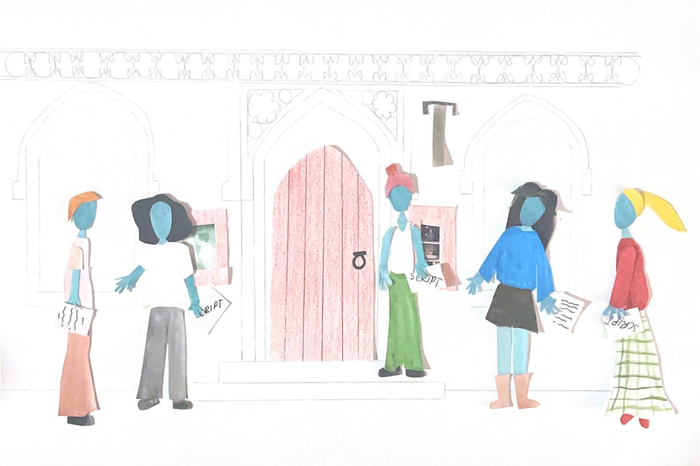Fences promises to be character-driven and powerful – not wooden
Hector Day-Lunn speaks to the director of August Wilson’s Fences to get an insight into the process behind getting this important BME production onto the ADC stage

“The fundamental heart of things is that we have to tell a story”, says Fences director Ivan Alexei Ampiah. The longer I chat to Ampiah the less this seems a generic response to my question of what has motivated his direction of August Wilson’s Pulitzer Prize winning play. Instead, it seems a compelling account of how he is totally committed to bringing to life this powerhouse of a text.
Indeed, Ampiah’s commitment to the textual fabric itself is exceptional: the vast majority of the rehearsal process, which began in August, has been completed via video call, which Ampiah admits is “weird”. However, what the cast has lost in terms of physical rehearsal they have gained in a remarkably deepened understanding of the text itself, with many online rehearsals being spent forensically analysing monologues line-by-line.
“A compelling account of how he is totally committed to bringing to life this powerhouse of a text”
This is something the director, who is a self-described “actor who directs”, relishes in his cast: “there’s nothing worse than saying lines and not knowing what they mean.” It is immediately apparent that Ampiah’s production will be unflinchingly attentive to the often emotionally charged language of the play. Fascinating character analysis, informed by the likes of bell hooks’ towering work on masculinity The Will to Change, appears to have taken the nuance of the actors’ performances to new heights. You can be sure of impassioned lines such as “I give you my sweat and my blood. I ain’t got no tears” being dealt with with all the sensitivity and gravity they deserve.
The textual purism of the rehearsal process has also provided a platform for the cast to open up wider sociological conversations, providing the actors with all the tools to perform “personality excavations” (a unique term coined by the director himself) on their characters, and effectively grapple with crucial topics of race-relations at the heart of the play. Ampiah’s Fences is “a story about black people told by black people [that] pulls no punches”, he says.
“Ampiah’s production will be unflinchingly attentive to the often emotionally charged language of the play”
The director, though, speaks candidly about the audition process, detailing that “casting an all-black cast in Cambridge isn’t easy”. He remembers his initial concern about not being able to find someone to play the complex “massive titan of a character” Troy Maxson. Fortunately, the audition of Aker Okoye put any concerns to rest, and Okoye’s performance as Troy looks sure to be an accomplished one. The director also reflects on the recent ‘legacy of black stories’ put on stage in Cambridge theatres, mentioning the particular successes of Fairview and Blackboard, suggesting that this production of Fences is the ‘next logical step’ for the flourishing of BME productions on the stage – and flourish, I imagine, this production will.
The director is right to sound as excited about this production as he does – his account of the fizzing energy in the room last week, when the cast were rehearsing in person for the first time, is suggestive of the fact this depiction of Fences will be brimming with freshness when the curtain rises next week. Ampiah says the cast came to the first in-person rehearsal armed with a commendable, incisive understanding of their individual characters, and that they were able to immediately breathe life into the characters they had spent the last couple of months becoming intimately acquainted with.
When asked what success looks like for his production, Ampiah tells me that the measure is that Fences stands by the characters it presents. The director’s frequent reiteration of his will to present portraits of domestic identity in the play is intriguing, and by making sure his cast ‘have all the resources’, it seems this aim will be achieved.
Fences was last performed in Cambridge seven years ago, and Ampiah feels now is the right time to once again stage this captivating story as it is one that “needs to be told […] now or never”.
“No-one has ever done it like this before,” Ampiah boldly and excitingly asserts. If you are in search of a scintillating, thought-provoking show to sink your teeth into, this production is surely not one to be missed.
Fences is showing at the ADC Theatre from Tuesday 22nd October – Saturday 26th October.
 Features / Should I stay or should I go? Cambridge students and alumni reflect on how their memories stay with them15 December 2025
Features / Should I stay or should I go? Cambridge students and alumni reflect on how their memories stay with them15 December 2025 News / Cambridge study finds students learn better with notes than AI13 December 2025
News / Cambridge study finds students learn better with notes than AI13 December 2025 Comment / The magic of an eight-week term15 December 2025
Comment / The magic of an eight-week term15 December 2025 News / News In Brief: Michaelmas marriages, monogamous mammals, and messaging manipulation15 December 2025
News / News In Brief: Michaelmas marriages, monogamous mammals, and messaging manipulation15 December 2025 News / Uni Scout and Guide Club affirms trans inclusion 12 December 2025
News / Uni Scout and Guide Club affirms trans inclusion 12 December 2025










